Sports betting in Illinois could bring in millions, but not on its own
Illinois could become the 10th state to legalize sports betting if it’s able to work through barriers at the legislative level, but with the legislative session closing at the end of this month, it’s unlikely the state will see it this year.
Gov. J.B. Pritzker anticipated that the legalization would yield $200 million for the state’s budget by pricing 20 wagering licenses at $10 million apiece.
Michael Lynch, adjunct professor at DePaul University’s School of Hospitality Leadership with experience in the casino industry, said raising $200 million solely off sports betting is a lofty goal.
“What New Jersey and Mississippi have found is the margins simply based on sports betting are relatively small,” he said. “However, they are finding that they are getting increases in revenue based on other things than sports gaming which is to say that people come to the casino to place a sports bet, but…they sit there and watch the game, they decide they’re going to play a little blackjack or a slot machine before they go home.”
In New Jersey, revenue from sports betting has brought in over $178 million in revenue since its debut last June, after the U.S. Supreme Court repealed the prohibition last May.
House Bill 3308 filed by Rep. Michael Zalewski has provided four different potential layouts for how Illinois could go about legalization (see sidebar). Zalewski told the Chicago Sun-Times that the model based on New Jersey’s legalization is likely to garner the most support. The New Jersey based model would allow betting on a larger scale including casinos, racetracks and online. Licensing fees would be $10 million apiece, the same price that has been implemented in New Jersey, with a renewal fee of $250,000 every five years.
In Mississippi, Jay McDaniel, deputy director for the Mississippi Gaming Commission said the state’s sports betting rollout was a smooth process since the state already had the legal infrastructure set up.
“We already had legalized casino gaming passed in the early 1990s that already authorized sports betting in the casinos, the only prohibition was the federal law,” he said in an email. “So once that was repealed last year, our law was already set up to allow sports betting, but only in our casinos. So our gaming commission just had to pass regulations on how to authorize it and regulate it in each casino property.”
Illinois is starting from scratch and could consequently face more barriers.
Eli Hershkovich, sports betting editor and analyst for RADIO.COM said a legal barrier specific to Illinois are the potential tax rates.
“Illinois lawmakers have discussed them hovering around 25 percent, which is roughly 18 percent higher than those in Las Vegas,” he said. “The license fees for sports book operators are expected to exceed those for states that have already legalized sports betting, too.”
New Jersey set the tax rate at 8.5 percent for in house sports betting when it revealed the sports betting law last year.
Sports betting across states that have legalized it is limited to professional and collegiate level sports, but specific wagers states are willing to take vary. Collegiate level sports generally have more restrictions across the board. In Mississippi, wagers on specific player outcomes are authorized for professional sports, but not at the collegiate level. Additionally, some states do not allow betting on an event that is either in the state, or a team from the state.
Lynch said the limitations on collegiate wagers originate from concern that the expansion of sports betting could encourage sport gamblers to reach out to players or trainers, and offer them a pay-off to influence game outcome. But Lynch said since illegal sports betting is already happening, legalization would ensure well-regulated betting.
“If this is going to be monitored, then any movement in wagering is going to show up and is going to present a red flag, and then someone would be able to look into it very closely,” he said. “It’s really more dangerous to have it the way it is now from an integrity of the game point of view than it would be to allow sports gaming to happen on a wider basis.”
In Nevada, sports betting has been regulated for decades, but it still faces competition.
“An ongoing challenge, is the fight against illegal bookmakers, whether that be illegal operators within our state or operators based elsewhere and taking wagers from within Nevada,” Michael Lawton, senior research analyst for the Nevada Gaming Control Board, said.
Lynch said the biggest benefit that legalization could bring is strict vetting and enforcement.
“I think the best part is that it brings sports betting out of the shadows and puts it in an area where it can be regulated and closely monitored,” he said. “It’s going on anyway and the state is getting no benefit.”


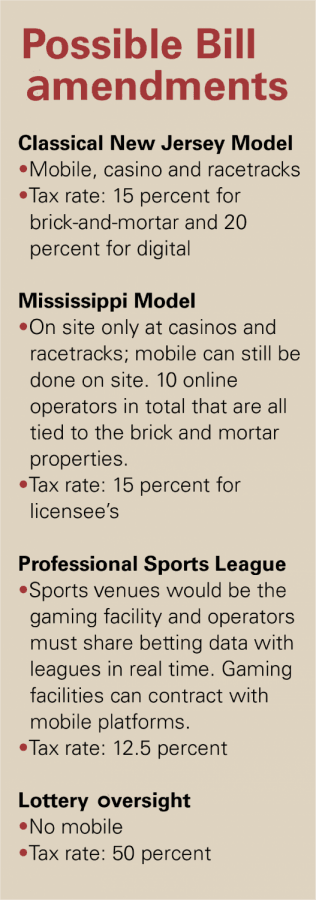
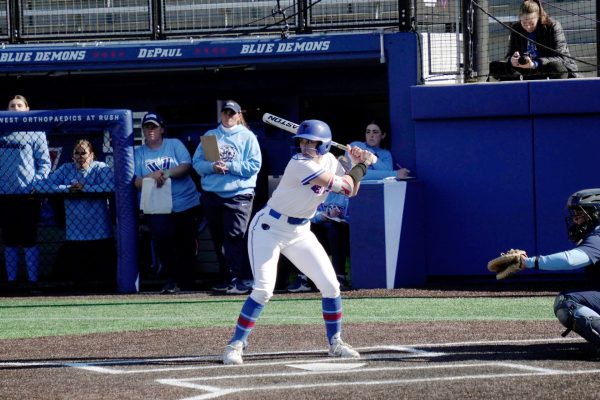
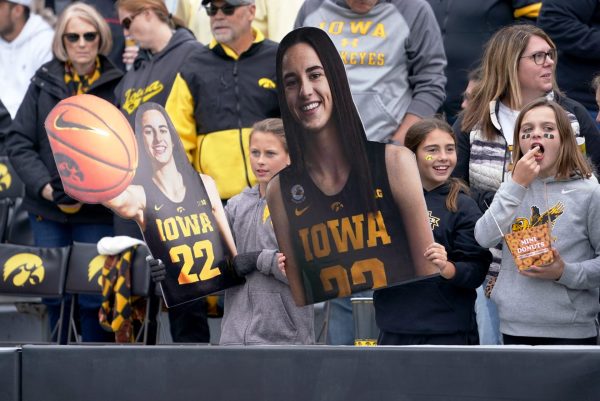

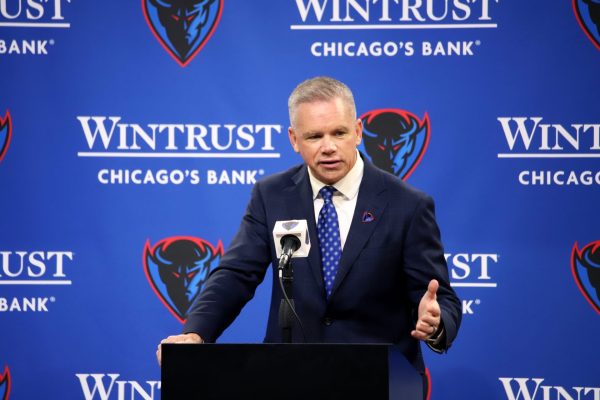
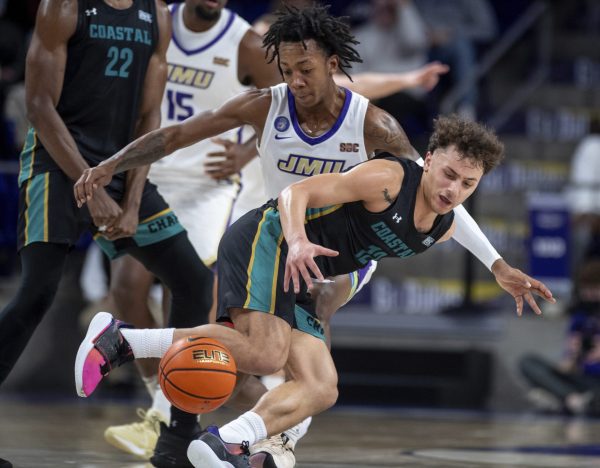
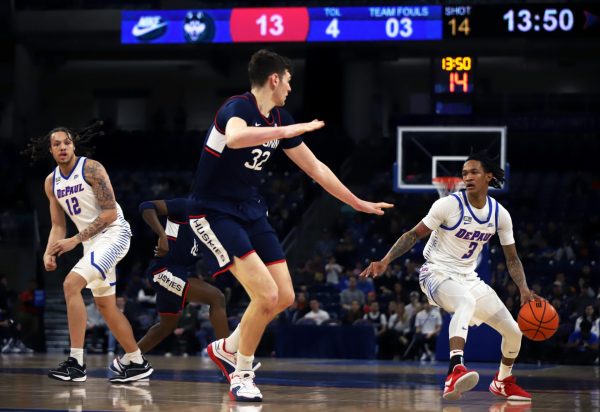
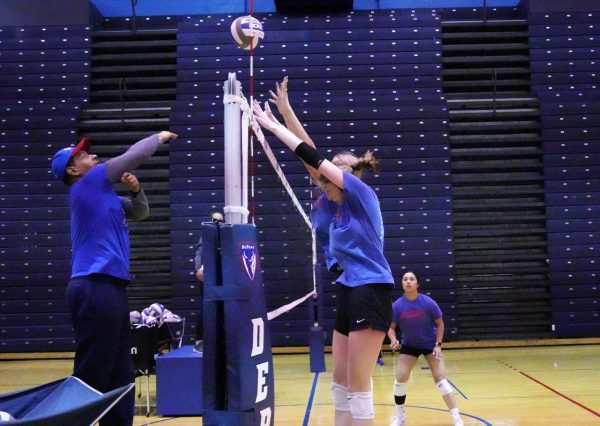
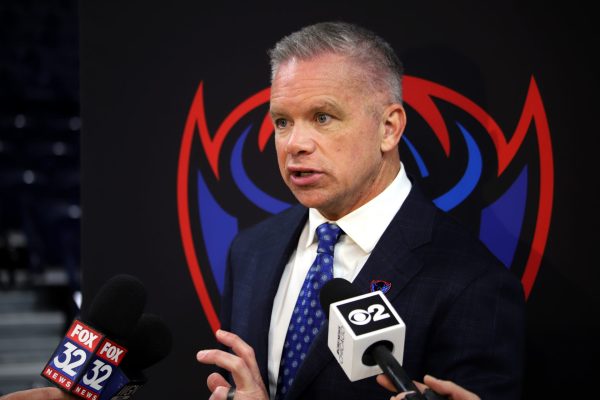
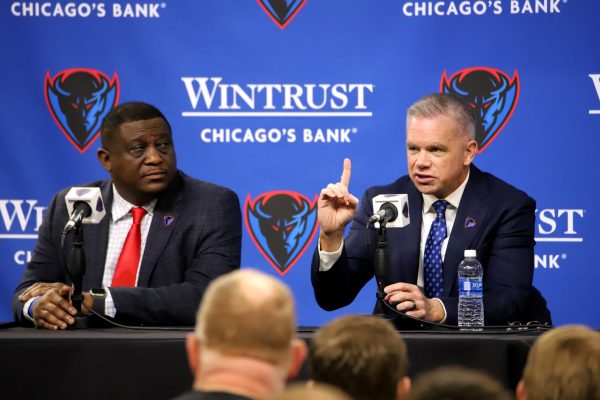
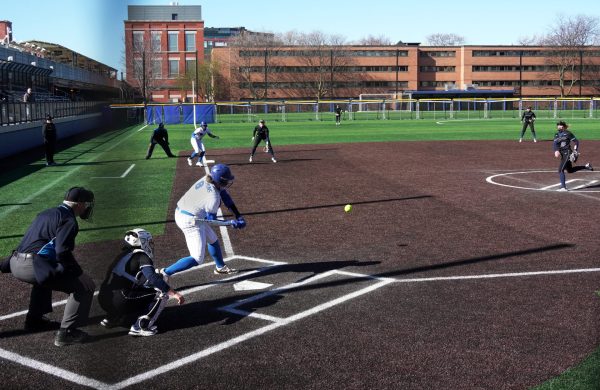
Jim Crow • Sep 8, 2019 at 2:26 am
Illinois is at forefront in leading the dumb way to do things. They think they are creating a industry from scratch…which has been around for decades. The high taxes rates for what will be a best a marginal increase over the long run for casinos…as usual they flunked on common sense.
Grig • Aug 28, 2019 at 7:05 am
Great!!!!